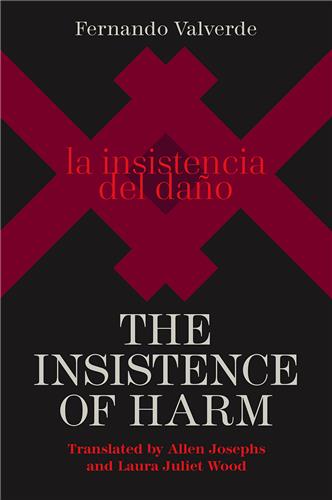Queer Genealogies in Dominican Literature and Culture
Maja Horn
Hardcover: $110.00
Paper: $30.00
Paper: $30.00
Tracing cultural representations of queerness in the Dominican Republic from the 1950s to the present
“Provides a nuanced and comprehensive analysis of the evolution of LGBTQ+ identity and politics in the Dominican Republic.”—Danny Méndez, author of Narratives of Migration and Displacement in Dominican Literature
“Horn brings literary and theatrical voices to bear on the question of LGBTQ/TT+ genealogies, and in so doing she traces queer representations from the Trujillo period to the present. Most important, Horn rejects the ‘developmentalist narrative’ that is often used to document and theorize queer movements in the Caribbean.”—April J. Mayes, author of The Mulatto Republic: Class, Race, and Dominican National Identity
In this book, Maja Horn examines the evolution of queer Dominican literary and cultural production from the 1950s to the present, challenging simplistic developmental narratives of LGBTIQ+ progress. Through an analysis of literature, theater, and activism, Horn traces how same-sex desire and gender nonconformity have been negotiated both tacitly and overtly across the years.
Beginning with early forerunners, Horn looks at literary representations in works by Hilma Contreras and Pedro René Contín Aybar during the 1930–1961 dictatorship of Rafael Trujillo. Horn goes on to explore the emergence of queer nightlife spaces during the Balaguer years through novels by Rita Indiana Hernández and Rey Emmanuel Andújar. Horn discusses how the work of playwright Waddys Jáquez challenges reductive mainstream representations of trans subjects and HIV/AIDS in the new democratic era. The book concludes with a discussion of groundbreaking recent texts that have expanded portrayals beyond Santo Domingo and introduced new perspectives.
Throughout Queer Genealogies in Dominican Literature and Culture, Horn shows how class, race, and gender have shaped access to public space and strategies for negotiating sexuality. Horn also reveals the coexistence of different ways of expressing queer identities. Recognizing the influence of coloniality and narratives of identity in the global North, Horn celebrates the shifting geographies and multiplicities of a uniquely creole Dominican queerness.
Maja Horn, professor of Spanish and Latin American cultures at Barnard College, is the author of Masculinity after Trujillo: The Politics of Gender in Dominican Literature.
- Sample Chapter(s):
- Table of Contents
- Excerpt
There are currently no reviews available












